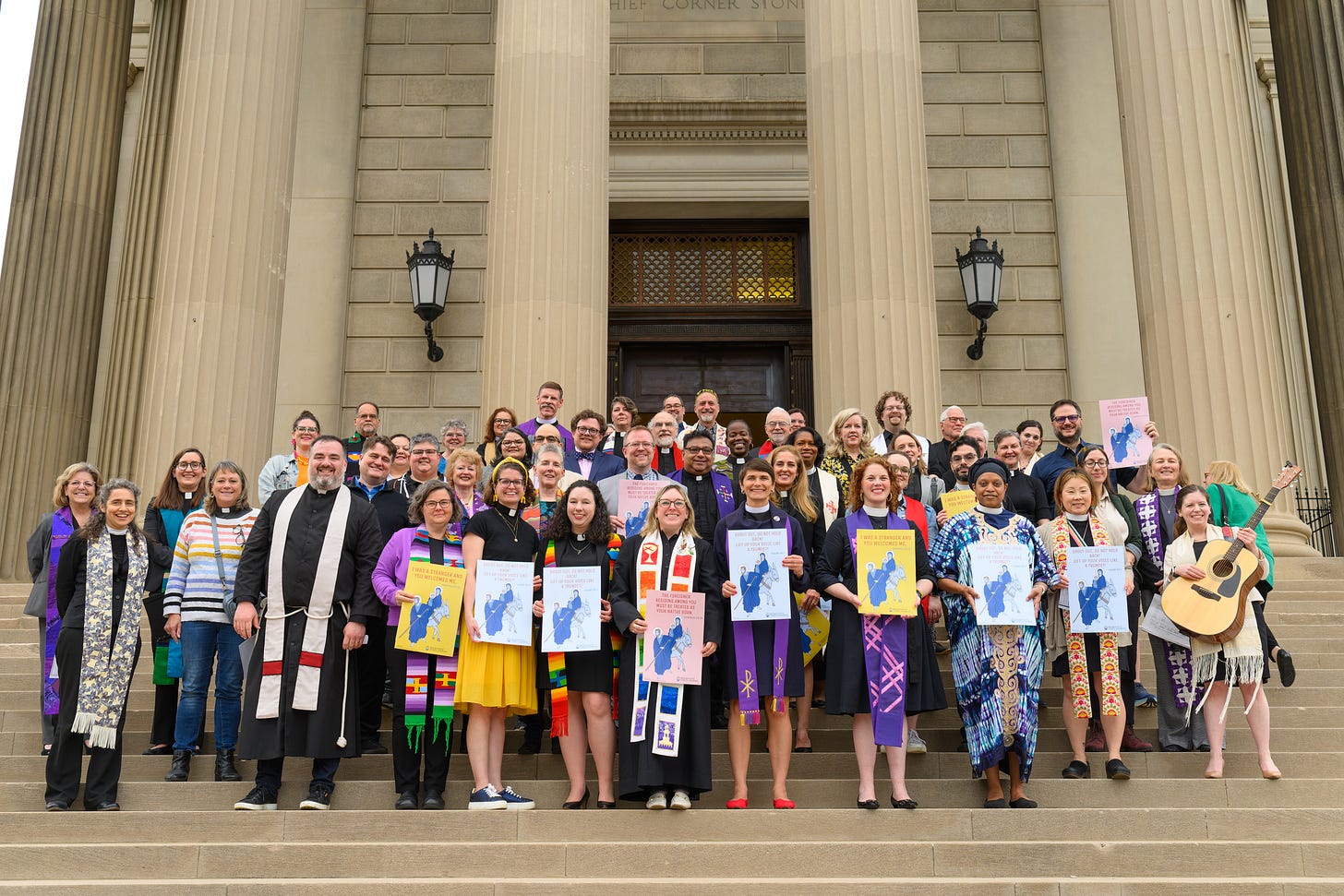The summer months for me are often a time of both work and rest, of public commitments and private reflection. For me, and many others, it is a time to prepare—mentally, physically, emotionally, and spiritually for the fight ahead. As this season draws to a close, I have been thinking about how despair can overshadow hope as we navigate times of darkness.
The threats to democracy in our nation right now are neither abstract nor distant. Authoritarian impulses have grown louder, democratic institutions have revealed their fragility, and our nation’s capital is currently being militarized, with members of the National Guard deployed throughout the city. In such times, the temptation is to withdraw into cynicism or despair. We must look away from this temptation and into the places that give us hope. Again and again, I find strength in the communities that call us back to faith as a public force for justice and good. Over the past several years, this Substack community has been one of those anchors that keep me grounded in justice and human dignity.
My life’s work has existed at the intersection of faith and public life. About five years ago, the opportunity arose to establish the Center on Faith and Justice at Georgetown University. From its inception, CFJ has sought to cultivate spaces where theological conviction and civic responsibility come together for positive action. A space where faith is not privatized or reduced to personal consolation, but lives as a moral compass for society.
At CFJ, we have sought to meet this challenge through both scholarship and action. Last fall, we hosted The Test of Faith Summit, bringing together theologians, clergy, scholars, and advocates to ask how faith communities could rise to address the increasing threats to democracy. In response to the Trump administration’s immigration policies, we launched a lawsuit calling these actions a violation of both constitutional principles and core moral commitments to human dignity. And on June 10th, we gathered at the steps of the U.S. Capitol for a Moral Budget Vigil to resist harmful budget cuts that would hurt millions of Americans, especially the most marginalized. CFJ has not only led but mediated these initiatives, showcasing that people, regardless of faith belief, can stand together, and that prayer is not passive resignation but a call to action in pursuit of justice and the common good.
I am grateful that hundreds of you have generously pledged to support this Substack financially. And while we purposefully don’t offer paid subscriptions here, this column is only possible through the work of the Center on Faith and Justice. If you find this Substack valuable, I encourage you to consider supporting CFJ directly with a recurring monthly or annual contribution—just as you would through a traditional paid subscription on Substack. Your impact would go beyond this Substack and support all the work and programming we do at CFJ.
As summer concludes and we all return with renewed energy and commitment, CFJ is preparing new events and initiatives that will challenge and inspire us. Our work is grounded in a belief that faith must be a bulwark against fear and a catalyst for hope. If you would like to learn more about CFJ and see our upcoming events, you can visit our website or become part of our growing community by subscribing to receive updates and content from the Center.
CFJ reminds me—and can remind all of us—that democracy is worth the fight, and that faith has the power not only to empower movements, but to protect humanity.
Together, we can keep hope alive in the face of darkness.



I did sign up to donate to your work for America, but my computer froze up while I was trying to send you a message. If you did not get the info for the donation, please let me know and I will resend it. Thank you for all you do and have done over these many years. God's blessings on all you do for America, Americans, and Immigrants who have been so valuable to our country and could do better if they had a better way to citizenship.
Definitely supportive.
I was in Seminary when Jim published The Post-American. As seniors in our late 70s I am afraid we cannot contribute financially.